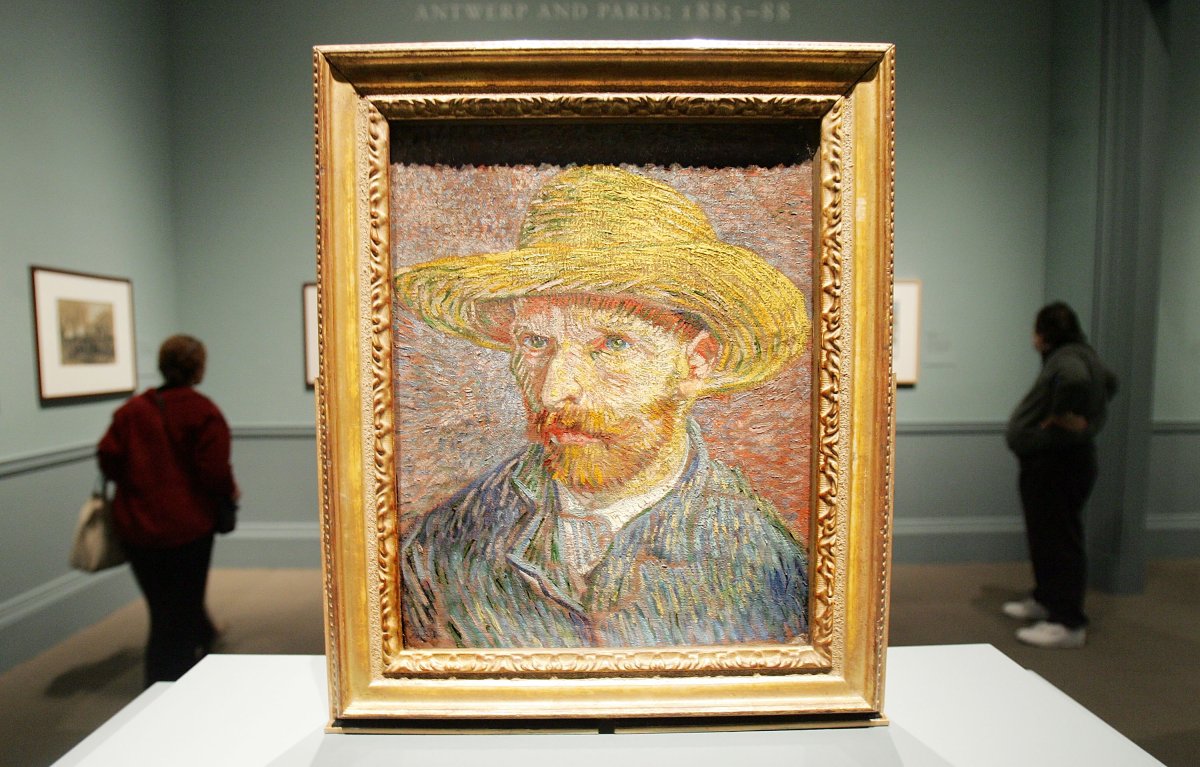As someone who lives with bipolar disorder, there are many things about my life that society gets wrong, one of which is that people with bipolar disorder are more creative than the rest of the population. March 30 is World Bipolar Day, a day in which we also celebrate Vincent Van Gogh—widely believed by experts to have bipolar disorder—and whose artistic ability is credited to his mental illness rather than to him as a person. A disorder that potentially caused him to mutilate his own body is glossed over because he was an incredible painter.
This narrative of mental illness as the source of creativity is simply untrue. I don't have some hidden biological advantage buried in my brain that gives me extra talent. What I do have is a talent that is credited to an illness with a death rate as high as 20 percent, rather than to me. This is an important distinction, because it is a trend that occurs repeatedly in my life. I make my living as a speaker and podcast host, and there are quite a few people who attribute my charismatic personality to bipolar mania. They look me dead in the eye and tell me they know I'm a great speaker because of an illness that has caused me an inestimable amount of pain.
"The Starry Night" was painted when Van Gogh was a patient at the Saint-Paul asylum in Saint-Rémy in southern France. To put it more directly, he was suffering from depression so bad that he needed medical care. In general, being in a psychiatric facility is not discussed in a positive light, but because a beautiful painting was created during his time there, society overlooks those facts. And, while society is so quick to credit bipolar disorder with his artistic ability, they aren't so quick to discuss—at least publicly—how bipolar disorder is responsible for his death. He died on July 27, 1890, two days after a self-inflicted gunshot wound to the chest.

The very notion that illnesses make people better is deeply disturbing. Being told that our success is due to an illness carries not only an attached stigma and misplaced credit but could potentially harm someone who is trying to reach recovery. Cliches like "tortured artist" contribute to the idea that treatment is the enemy, implying if someone gets better they will lose the spark that makes them special. It would not be unreasonable for a person to believe that their talents, accomplishments, and achievements would go away if they were no longer sick. This kind of discouragement leads to people with bipolar to refuse medical intervention and support all the time.
I'm puzzled as to why our society needs to hold on to these tropes so tightly. Why can't an illness that causes suffering, pain, and even death simply be bad and leave it at that? What protective factor is created in believing that while bipolar takes with one hand, it gives with the other? I'm fascinated by movies like "Silver Linings Playbook '' that, while getting many aspects of bipolar disorder correct, still fail to separate the main character, Pat Solitano (portrayed by Bradley Cooper), from his illness. The audience is left to believe that his personality is, simply, "bipolar."
The reality is that people who are living well with bipolar disorder look just like everyone else, and may, like me, feel trapped by the fact that our disorder is so misunderstood that society has to find a way to boil down the essence of who we are to our diagnosis. If we want to explain greatness or amazement it's a "spark of madness," but when we speak about undesirable behavior, it's described as "crazy."
We need to look beyond the label of bipolar disorder, just as we need to look beyond any label that is supposed to solely define a person. No one is just one thing and stereotyping is the shorthand of the lazy. We need to take the time to get to know people on an individual level and approach people living with bipolar disorder with an open mind.
And all this leads me back to Van Gogh. We need to recognize and appreciate all he was able to accomplish not because of his diagnosis, but in spite of it. Maybe then we can begin to see people with mental illness more as the unique people they are and less as punchlines to a convenient narrative.
Gabe Howard is the host of Healthline podcasts Inside Mental Health and Inside Bipolar.
The views expressed in this article are the writer's own.
Uncommon Knowledge
Newsweek is committed to challenging conventional wisdom and finding connections in the search for common ground.
Newsweek is committed to challenging conventional wisdom and finding connections in the search for common ground.
About the writer
To read how Newsweek uses AI as a newsroom tool, Click here.








